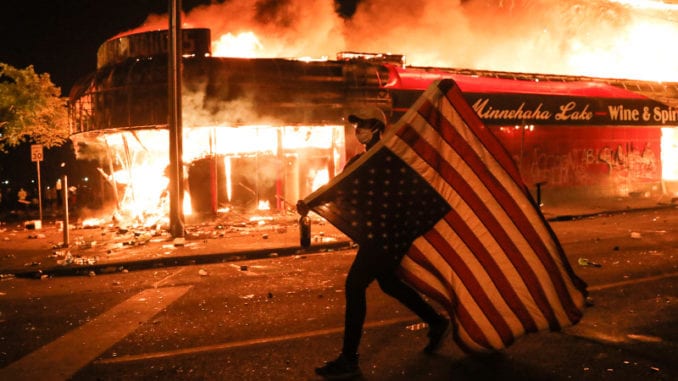
Written by Tosin Agbi, Emma Pascu, and Ethan Carley
Two weeks ago, the world didn’t know the name George Floyd. He was a father in Minneapolis trying to turn his life around. Now, Floyd has been added to a long list of African-American victims taken away because of racial injustice. Although Floyd may be dead, he has become the icon of a flaming movement across the world against the systemic racism facing Black people.
Recently, America has been flooded by a wave of intense protests against racism. People of all colours across the world are standing against systemic racism. At the heart of the movement is a young generation eager for a world of equality where no one should be afraid to call the police or be attacked just because they are Black. Our journalistic team was keen to see how students feel about the current civil climate, but in doing so a much more startling matter was brought to light: the pervasiveness of racism within the walls of our own school.
On May 25, George Floyd was ruthlessly murdered at the hands of a white police officer. Following a store employee’s accusation that Floyd had paid with a counterfeit bill, the police arrived at the scene. After reportedly resisting to be handcuffed, Derek Chauvin, one of the officers, mercilessly pinned his knee on the man’s neck for exactly eight minutes and forty-six seconds, while the other officers did nothing. When the knee was finally removed from Floyd’s neck, he was taken to the hospital and pronounced dead about one hour later.
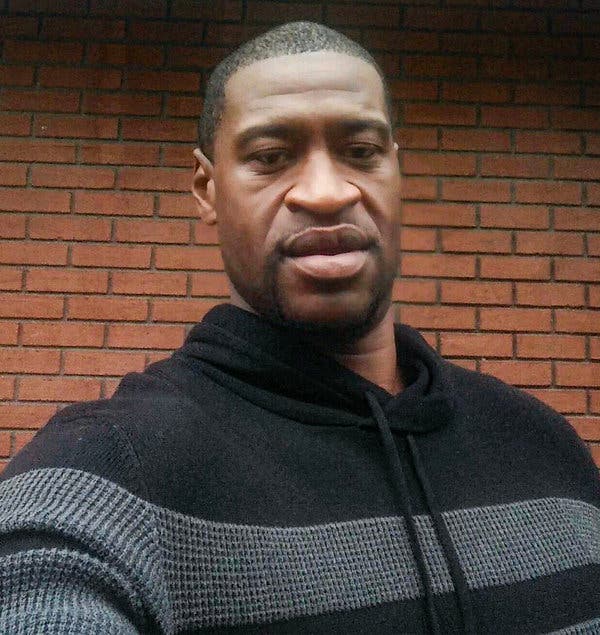
With the recent police killings of Breonna Taylor, and Ahmaud Arbery , the murder of George Floyd sparked outrage across America. In solidarity, major protests emerged in large cities in the U.S. as well as other countries around the world. Thousands of activists, fed up with the recent wave of racial injustice, filled the streets chanting “Black Lives Matter!” Some protestors laid on the ground yelling “I can’t breathe!” in reference to Floyd’s final worlds. The intensity of the protests makes it clear that citizens worldwide are done with these events repeating themselves. The murder of Black individuals is a cruel cycle that must end.
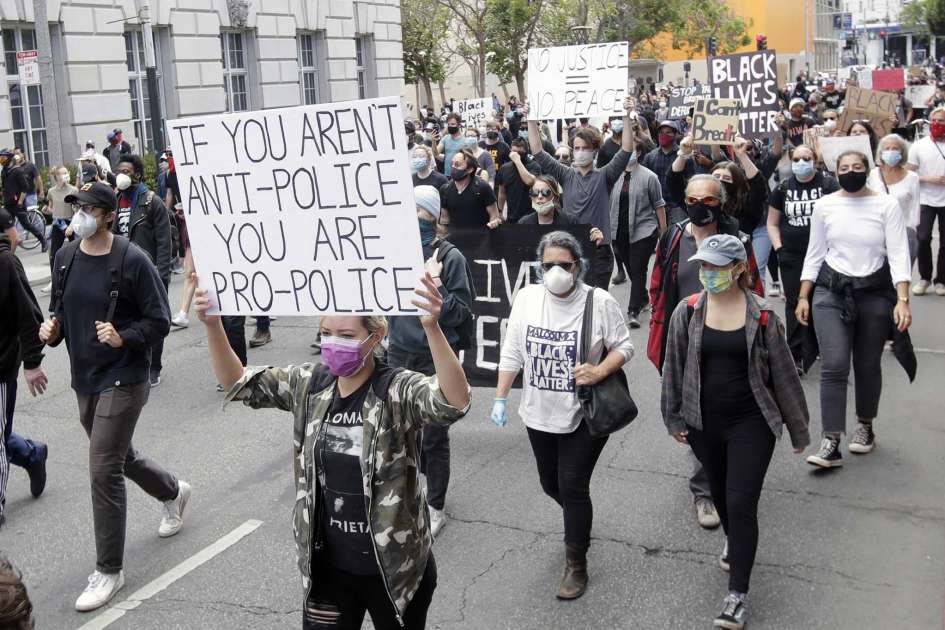
The protests in the US quickly turned violent. Businesses across America were damaged and looted, while some buildings went up in flames. The police have launched tear gas into crowds, arrested law-abiding journalists, driven cruisers into large crowds, and shot rubber bullets at peaceful activists.
Over the course of American history, police brutality against black communities has run rampant. It is a civil rights violation where officers exercise undue or excessive force against a civilian. According to the organization Mapping Police Violence, Black people in America are three times more likely to be killed by the police than white people. And 99% of killings by police from 2013 to 2019 have not resulted in officers being charged with crime.
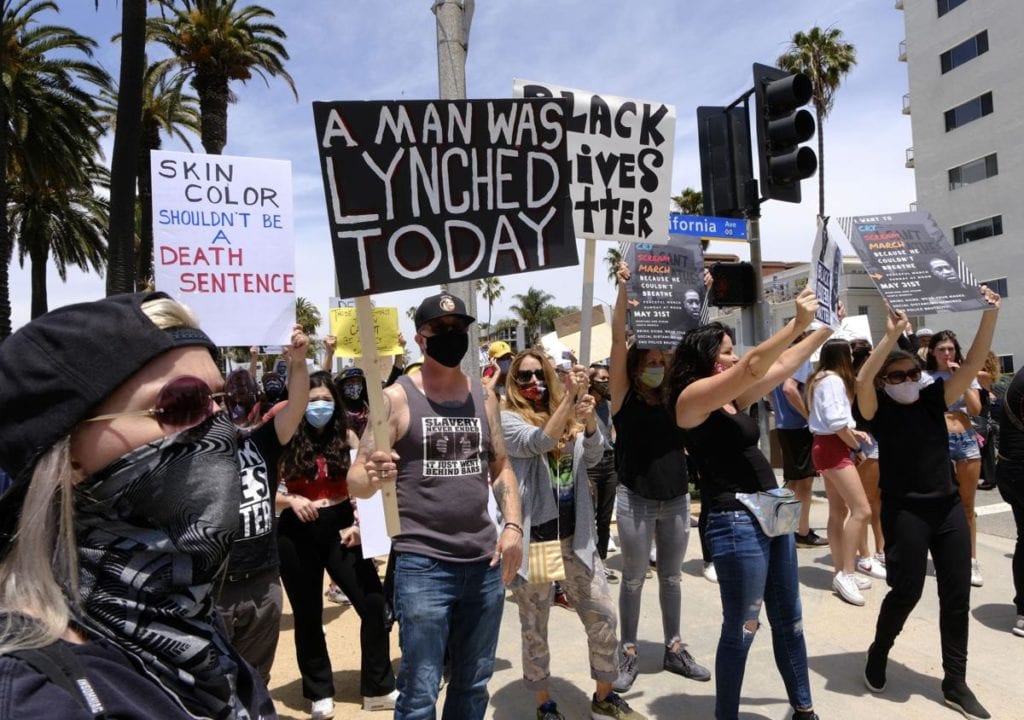
Raider Weekly spoke to some students who shared their thoughts and opinions on what happened to George Floyd, and students are sickened by the murder. “I think that what happened to him is disgusting and really sad. Nobody should be treated this way,” answers grade ten student Gloria Kabuya. “You can’t hate someone just because he/she is a shade darker than you,” she declares. “The murder of George Floyd has sparked anger and frustration in me,” agrees grade eleven student Robin.
For so many students, racism is a challenge they battle against every day. Robin told us this wasn’t “a new feeling” for her. Another student feels “the police are not safe anymore.”
When asked if these recent events affected these students, students of colour feared their family members and friends may face the same reality as Floyd and so many other innocent black men. “I have brothers who are black, and it worries me that one day that could be them,” shares Wubaida Awudu.
Another grade ten student, Tomi Ayeni, told us, “It’s sad when your parents tell you to be careful when choosing your friends because if one of them stole something at a store, for example, the police would most likely come after you, even if you didn’t do anything.”
“We are all brothers and sisters in the Black community. When one dies, it really breaks my heart,” says Gloria. “We are all human and bleed the same blood.”
There is a common misconception amongst Canadians that racism “doesn’t exist in Canada.” As one student observed, “Canadians are just better at hiding their ignorance.” Wubaida remarks that while racism is quieter in Canada she has been subjected to discrimination like “a white person asking me when I immigrated to Canada,” or hearing people use the n-word against her at work.
Our source who requested to remain anonymous told us they had been the target of racist remarks at school. “I try to play it off and laugh, but at the end of the day, you sometimes feel like removing your culture, and I hate that I have those thoughts.” Faith Ishola shares a similar reality: “I have been subjected to racism, but I just kept my head up because I can’t let them win.”
Tomi feels people expect him to live up to a certain standard because of the colour of his skin. He has been told by members of our school that he “should be the fastest person on the track and field team.” “It can almost come as a shock to people when they know that I’m well-behaved and achieve high marks in my classes,” he adds.
Robin does not feel the issue only exists amongst students, but also in the instruction students receive. “We need better methods of educating students about the real history of our country, racism, white privilege and systematic oppression.”
The administration was “distressed” to hear of students’ encounters with racism within the school community. They want students to be open with them about their experiences with racial discrimination, so that they can take the necessary actions to focus on a safe environment for everyone at school.
Mr. Perusin assures “the school will continue to promote equality and justice” and will be implementing various student led focus groups that will concentrate on “addressing and celebrating the diversity and equality of the student population.”
As pointed out by many, racism is a problem rooted in forms of superiority, like white supremacy. The state of racism will only improve when non-Black people realize the inequality that exists and what they can do to change it. “At our school, I have witnessed no racism, but that does not mean that it isn’t happening,” explains grade 10 student Naida Ribau. “I feel frustrated at everything, and am quite compelled to do everything in my power to give people of colour justice and to be an advocate for their rights. I understand that I am privileged, and that these people have a lot more difficulty in many situations than I do, and I am willing to fight to change that.” Naida has made donations and signed petitions to advocate for the arrest of the officers involved in Floyd’s death.
More can be done to ensure the safety and confidence of black people and other students who feel disregarded. The school community can hold people accountable for racist behaviour, as well as educating themselves by reading books about the negative effects of racism, listening to podcasts about black lives matter and watching videos that explore the topic of prejudice.
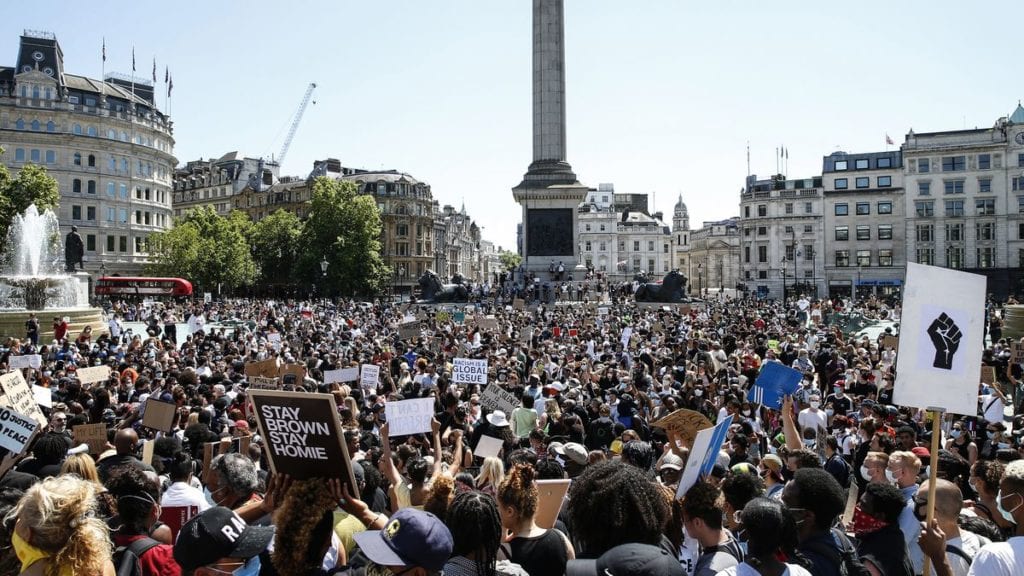
Many individuals agree that if people don’t recognize what is happening and speak up about it, the problem will not be solved. “For years, black people have been protesting and begging to be heard and respected,” Wubaida states. Tomi explains how he struggles knowing “black activists in the 1900s such as Martin Luther King Jr. and Malcolm X were killed for voicing their opinions, only for history to continue repeating itself 50 years later.” By easily listening to what other people have to say, we can make a change.
Sadly, George Floyd has become another name on the list of victims that police have killed, but why is this so? Many of us need to learn that not speaking out against racism and bigotry allows for situations like these where people abuse their power to unjustifiably hurt innocent people.
In the words of Michelle Obama, “It’s up to all of us- black, white, everyone – no matter how well-meaning we think we might be, to do the honest, uncomfortable work of rooting it out. It starts with self-examination and listening to those lives who are different from our own.”
What YOU Can Do to Demand Change:
You can donate, sign petitions, or protest to make sure police brutality is not tolerated.
Change won’t happen unless people acknowledge racism and make an effort to instigate change!
Below are active petitions in support of various victims of racial injustice – please feel free to sign them if you wish.
Petition: Justice for David McAtee
Petition: Justice For George Floyd
Petition: Justice for Breonna Taylor
